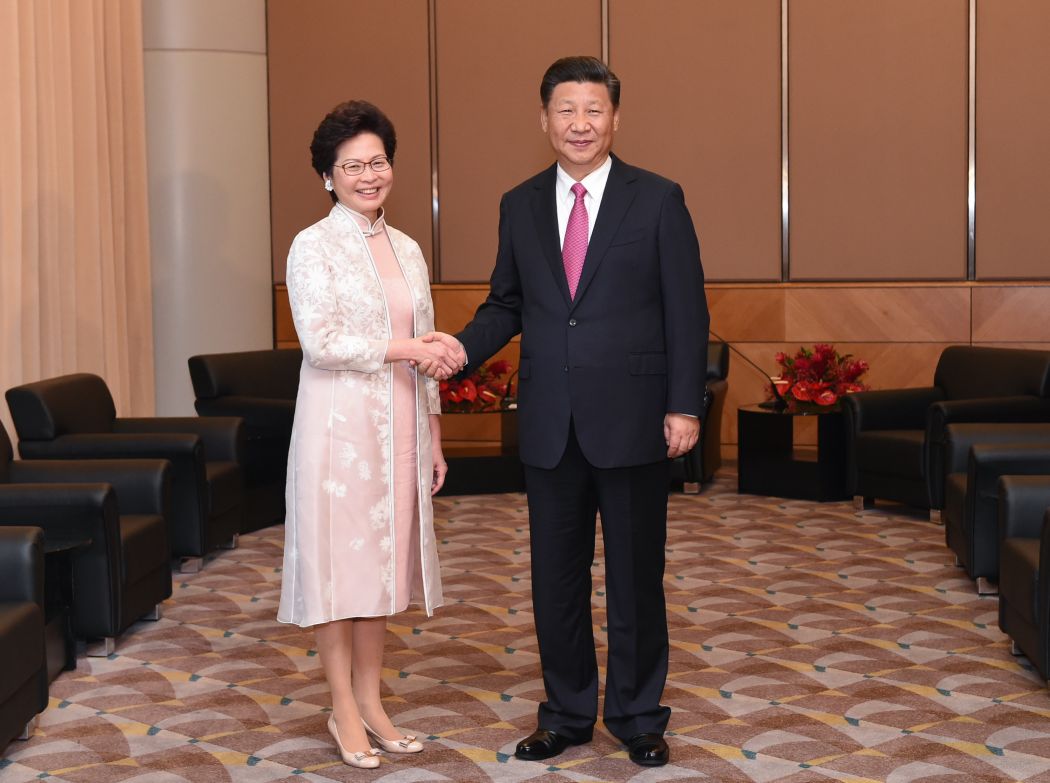Earlier this month, Financial Secretary Paul Chan outlined in his personal blog Hong Kong’s role in investing in Belt and Road projects.
In his post, he noted that the “HKMA’s Infrastructure Financing Facilitation Office (IFFO)… is exploring cooperation with state-owned enterprises (SOE) to look for some attractive overseas projects with stable returns, and to consider investing these projects in a way as equity investors.”
Chan’s announcement, made in Chinese, has attracted little comment in the English language press.

Who could object to higher returns on Hong Kong’s large reserves and surpluses? Using money held by the central bank to invest could only help Hong Kong, and Beijing. Well, most professional economists, and the International Monetary Fund in particular, have frowned on this type of scheme in most countries.
The reasons are obvious: giving public money to SOEs doesn’t just make SOE balance sheets look artificially good. Such investments also help take money off government’s official balance sheets.
International public finance rules usually take a dim view of spiriting government money into off-shore SOEs, even in less-than-democratic countries.
Think where the money could go from there. What stops government-owned and controlled SOEs from simply forwarding the money to the national treasury in Beijing? Such a move would attract far less attention than a direct transfer.
Or worse yet, having these investments “fail” (namely never made in earnest). Local government officials, SOE representatives and locals in Belt and Road countries could very easily divide the money between them.

The auditor and former World Banker in me recoils. Yet, the jurist in me sees far deeper, interesting questions in governance and sovereignty.
Under the One Country, Two Systems formula, does Beijing have the right to take budget funds and/or central bank reserves, in the same way the Russian budget can take a cut of local revenues through a process called “equalisation”?
What duty do Hong Kong officials have to protect such funds overseen by a national sovereign? What about a sovereign manned by individuals widely proven to enrich themselves with public funds?
Using Hong Kong public money to invest in Belt and Road projects then can either feed corruption (at worst), clientelism, direct state-influence of economic affairs (the most likely), or simply represent a transfer to the national treasury (at best).

Journalists and taxpayers in Hong Kong have no rights to the kind of freedom of information found in the West. The government does not owe us the same reporting over the use of public funds as in the US or EU. Yet, they owe us something. Otherwise, why report on it at all?
So what level of transparency is our due?
[mks_tabs nav=”horizontal”]
[mks_tab_item title=”Translation”]
HKMA’s Infrastructure Financing Facilitation Office which has been established for two years. It has been playing a bridging role in directing international funds to high returns and valuable projects, filling the funding gap for infrastructure projects. With the support of the State-owned Assets Supervision and Administration Commission of the State Council, the HKMA is exploring cooperation with central state-owned enterprises to look for some attractive overseas projects with stable returns, and to consider investing these projects in a way as equity investors. Last year, the Securities and Futures Commission (i.e. the Hong Kong securities regulator) also issued guidelines about the listing of infrastructure projects firms in Hong Kong.
[/mks_tab_item]
[mks_tab_item title=”Original”]
已經成立了兩年的金管局基建融資促進辦公室,正發揮著這種橋樑角色,把國際資金引導投向具回報、有價值的項目,填補基建項目的資金缺口。在國務院國有資產監督管理委員會的支持下,金管局正在跟部分央企探討合作,共同物色一些回報穩定並具有吸引力的海外項目,考慮以股本投資人的角色作出投資。香港的證監會也在去年就基建項目公司在香港上市的要求發布了指引。
[/mks_tab_item]
[/mks_tabs]
